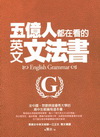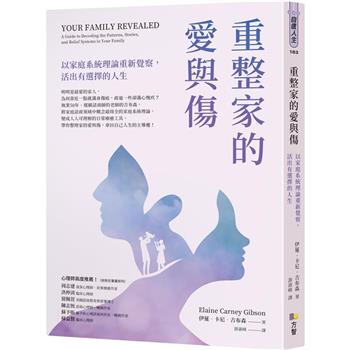推薦序
很高興此次有機會將薄冰老師的力作《薄冰英語語法指南》(註:台灣書名《五億人都在看的英文文法書》)介紹給臺灣的讀者。薄冰老師是內地英語教育的權威人士,業界公認的大家。數十年來一直從事英語教研工作,一生桃李滿天下,他的英語學習類著作也惠及了無數莘莘學子,英語語法尤其是薄冰老師所精專的領域。
目前經典類的英語語法學習書大致可為分兩種:一種是對整個語法體系及其概念與實例進行分析性的講解與介紹;一種是針對語法真實應用當中的問題與現象作綜述性的指南。前一種類型雖然全面,但卻是“授人以魚,而非授人以漁”,有時學習者會出現儘管掌握了一大堆語法概念與知識,而實際應用起來仍然無所適從的現象。後一種類型的語法書針對性強,重點不在介紹詳述語法概念,而在總結英語語法應用中的問題,並做出正確的指導,使學習者最終可以學以致用,真正掌握英語語法。本書就是屬於後一類型的指南性語法著作,也是薄冰老師的封筆之作,更是薄冰老師一生語法教學功力的集大成之作。
除英語教研之外,薄冰老師一直在英語教學雜誌上主筆疑難解答專欄,本書中所列舉的語法應用問題,都來自這些真實的例子,是眾多讀者若干年來向薄冰老師請益的問題。薄冰老師運用自己的語法功力,一一為讀者做出了深入淺出的回答,並針對問題延伸講解,以期達到舉一反三的功效。針對各個不同類型的疑難問題,薄冰老師按照語法概念進行分類,這樣既在微觀上解決了語法應用的具體問題,又在宏觀上體現了語法體系的整體框架,相信無論是何種程度的英語學習者,都能在這本總結了薄冰老師一生經驗的語法書中獲益良多。
作為大陸最大的外語教學出版社,外語教學與研究出版社一直致力於為學習者提供全面解決方案,此次與臺灣捷徑文化出版事業有限公司合作,向臺灣讀者推薦此書,希望也可以和大陸讀者一樣,讀到這本英語語法教育專家的力作,並從中受益。隨著兩岸交流的進一步擴大、開放,我們希望把好書源源不斷地介紹給臺灣的讀者。
外語教學與研究出版社 社長 蔡建峰
導讀
捷徑出版社即將出版《薄冰英語語法指南》繁體字版。總編輯王毓芳小姐讓我看了這本書的初稿,我閱讀之後,有一些想法。
看熱鬧,也看門道
這本書讓我想看看熱鬧。看什麼熱鬧?薄冰老師的英語語法書系列在大陸幾乎是人手一冊,他的書是暢銷書,也是長銷書,出版量達數百萬冊。去年我知道這本語法書即將在台灣出版,作為一個英文愛好者,聽聞這樣的書,豈有放過的道理,絕對會想買一本來讀,看看書好在哪裡?
現在因緣際會,我拿在手上的還是這本書的初稿呢。這扎扎實實的九百頁語法書,就在我面前,算是讓我湊了熱鬧。我讀了一些章節,也看出一些門道。這本書有許多優點,我現在摘要提出一些:
博採眾長
對於語法的闡述,作者總是旁徵博引,常列舉其他文法學者的看法,或是英語辭典(像是朗文與COBUILD辭典)的用法來加以佐證。例如,對於each和every的差別,作者舉了一位西方文法大師所說的「each singles out where every unites」(232頁),這位大師說得好,但作者也引用得妙。有時作者也會和其他專家的看法相左,而另闢蹊徑。例如,他固然讚賞Mr. F. T. Wood「敏銳與精細之處」,但是對於help這個字的用法,則能夠從歷史演變的角度切入,提出截然不同的語法觀點(417頁)。
豐富的例句
本書例句之多,在兩岸的語法文法書中,實屬罕見。薄冰老師在本書中提供大量例句,生怕例句不夠多,學生學不好,這種作法,讓我想起誨人不倦的老派老師。例如,在889頁,有關形容詞轉化為副詞的情況(像I am awful sorry.中的awful就是形容詞轉化為副詞),作者提到「學生對此情況應該多加注意,故願多舉一些例子如下」。接著,他列出三十七個例句,這種治學精神值得其他語言書作者借鏡。此外,為了釐清every和each的差異,他則列出五十七個例子加以闡釋(232-235頁)。
文法術語精準,有助釐清文法盲點
我們知道,理解任何一種學門,都是從基本術語開始。基本上,術語定義概念,而掌握概念,才有精熟的可能。
這本書我最喜歡的一點,就是不時出現一些讓人驚豔的文法術語,這些術語能讓讀者迅速掌握一些艱澀的文法概念。像是冠詞這一章(凡學過英語的人都知道冠詞文法的難度。本書用了一百多頁的篇幅,講解冠詞,應該算是空前絕後的),提出了「零冠詞」的概念。其實大部分的文法書,都不提這個概念,但這個概念才能使冠詞的規則具有一致性(即任何名詞均應加上冠詞,你可以放定冠詞、不定冠詞或是零冠詞),這樣對於學習是很有幫助。此外,像是「含蓄條件句」(484頁)、「be 動詞做為實義動詞」(859頁)、「主觀願望的動詞」(311頁)、「複合及物動詞」(527頁)等術語的提出,均有可觀之處。
解惑去疑,擴展視野
本書一個很大的特色就是讀者來函提問。這些文法上的問題來自各級考試試題與經典文學作品。作者總是能精準解題,且能適時提點相關文法,能夠加強考生的深度與廣度。但作者在回答讀者提問in factory或in the factory的問題時,也不忘提醒讀者:「一切說法最後並不決定於文法,而是決定於習慣」(134頁)。
在文法晦澀處,更見功力
在英文文法中,藏著一些很難理出頭緒的概念。有時候,連在第一線教學的老師也只知道規則,而不知其所以(這很正常,因為有時候連語言學者也沒有定論)。
本書在處理這些難處時,更見作者功力。例如:fish和fishes的差別(23頁);該用make friends,還是用make friend(22頁);為什麼不可數名詞water、rain有時候會寫成waters、rains(25頁);rather than的用法(837頁);seated用作形容詞(456頁);形容詞的順序問題(516-523頁)等等。這些問題都能在這本書中得到令人滿意的解答。
身為教師與語言書作者,我非常高興有這種大部頭的語法書出版,對於國人英語能力的提升一定有很大的幫助。我也樂意以讀者以及後學的身份來推薦薄冰老師這本語法書。是為序,亦為導讀。
江正文
二0一一年八月於台北文山












